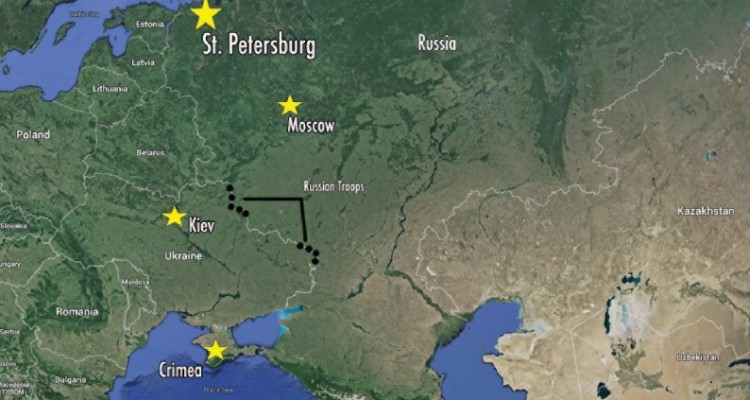While the recent turmoil between Crimea, Ukraine and Russia has affected the global political climate, it was not expected to also directly affect Fairfield students.
During this spring semester, as many as six Fairfield students registered and planned to participate in a week-long study abroad trip to St. Petersburg, Russia. However, due to the rising conflicts and violence in Crimea, the trip was cancelled.
Before the trip was scheduled to begin, the U.S. Department of State released a travel alert to Russia due to the possible danger of foreigners traveling to dangerous regions. The travel alert was last updated on March 14, urging Americans to reconsider their travel plans in light of the current issues in those regions.
“As director of international programs, the ultimate decision was mine, but was made only after consulting with Professor McFadden and the Office of the Academic Vice President,” said Christopher Johnson.
Johnson worked in collaboration with Dr. David McFadden on the details of the program and on the task of having to cancel the trip.
The trip was designed to provide students the opportunity to be exposed to the history and culture of Russia, while also attending classes that focused on the political and historical implications of Russia. This was the second year in which the trip was cancelled; last year’s cancellation was credited to insufficient student interest.
Although the trip has been cancelled twice now, this is no indication that the possibility of future trips to St. Petersburg would be less likely, according to McFadden. He pointed out that the trip has been a part of the university for the past 20 years, offering hope that the trip will continue for years to come.
“St. Petersburg is a beautiful city, completely a European city, with world class museums and historic sites, and Fairfield will continue to go there so long as I am director of Russian, East European, and Central Asian studies and teach Russian history,” said McFadden.
The program was set up so that each day, the classes would cover different parts of St. Petersburg, focusing on the vast history of the region. In addition, students would have taken day trips to historically significant locations.
“Ultimately the unsettled nature of things in Ukraine and the uncertainty over the next moves made the situation too uncertain for the trip to proceed,” said Johnson.
According to Johnson, the first notification the students received from Fairfield about the dangers of the spring break trip were sent out around the March 10-11, but students did not receive any emails. Johnson could not explain the reason for the apparent technology failure.
Subsequently, students were contacted about the cancellation via phone call on March 2, the day before the trip was set to start.
“This was too late and we have taken steps to ensure much earlier and much more purposeful communication,” said Johnson.
As of today, the students have yet to be fully reimbursed for the cost of the trip. According to Johnson, the full reimbursement of the program fee should be sent to students soon.
The resistance from Russia to comply with America’s sanctions has affected the global perspective on the Russian administration. The sanctions included visa bans to bar certain Russians and Ukrainians from entering the United States. The sanctions also blacklisted several prominent Russian officials with ties to Vladimir Putin, Russian banks and oil and natural gas industries.
Russian allies and partners have been shaken due to the negative perception of Russia involving the issues in Crimea. International leaders have publicly condemned Russia’s actions, but few would have considered the influence this conflict would have on college students.
The dangers of the involved Eastern European regions have been publicly deemed as unsafe, and the Fairfield administration has made their stance clear on the matter. Despite this, Stephen Griffin ’14, who planned on participating in the trip, felt that the administration could have been acting in bad judgment.
“I feel like the only reason for the cancellation of the trip would just be either a lack of understanding of what’s going on over there, or just being very cautious about everything,” said Griffin.
This trip was Griffin’s last opportunity to study abroad through Fairfield and because of the dangers of traveling the opportunity was lost.
Griffin also felt that, given the proximity between Crimea and St. Petersburg, the danger was not as dire as it was made out to be.
“I understand there will be anti-American sentiment in a lot of places, but I didn’t feel like it would have been as much of a threat in St. Petersburg,” said Griffin.
While the students’ opinions on the cancellation may not correspond with the administration’s, Johnson remains firm with his stance on the importance of safety.
“I don’t think we can be too cautious when it comes to our students’ welfare. I certainly understand the disappointment, but it’s the University’s responsibility to ensure that we are not potentially putting students in harm’s way,” said Johnson.


Leave a Reply